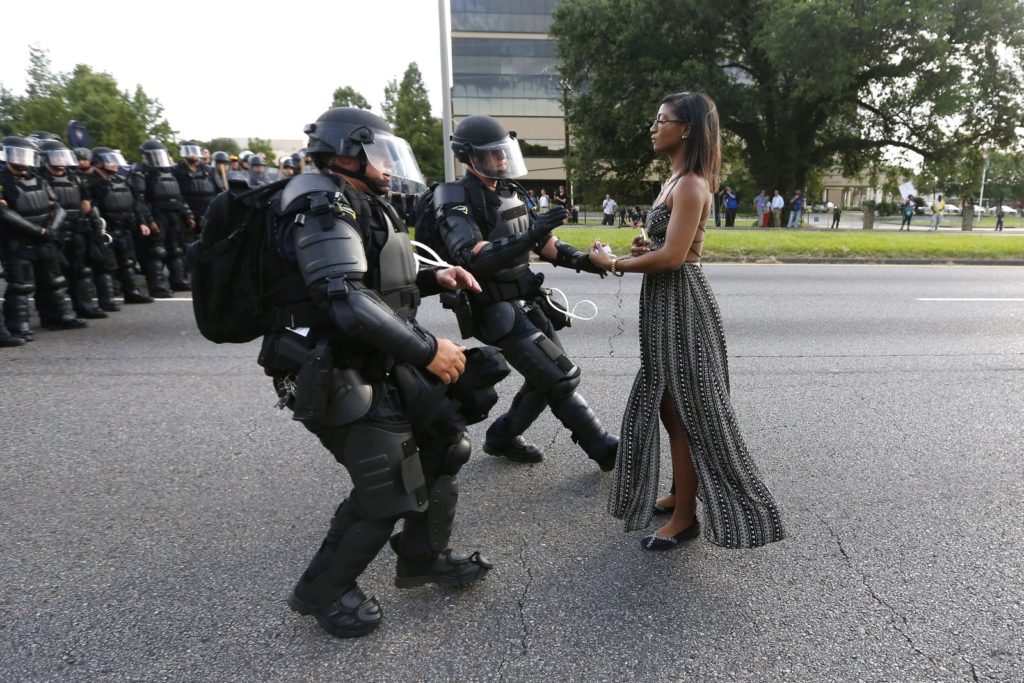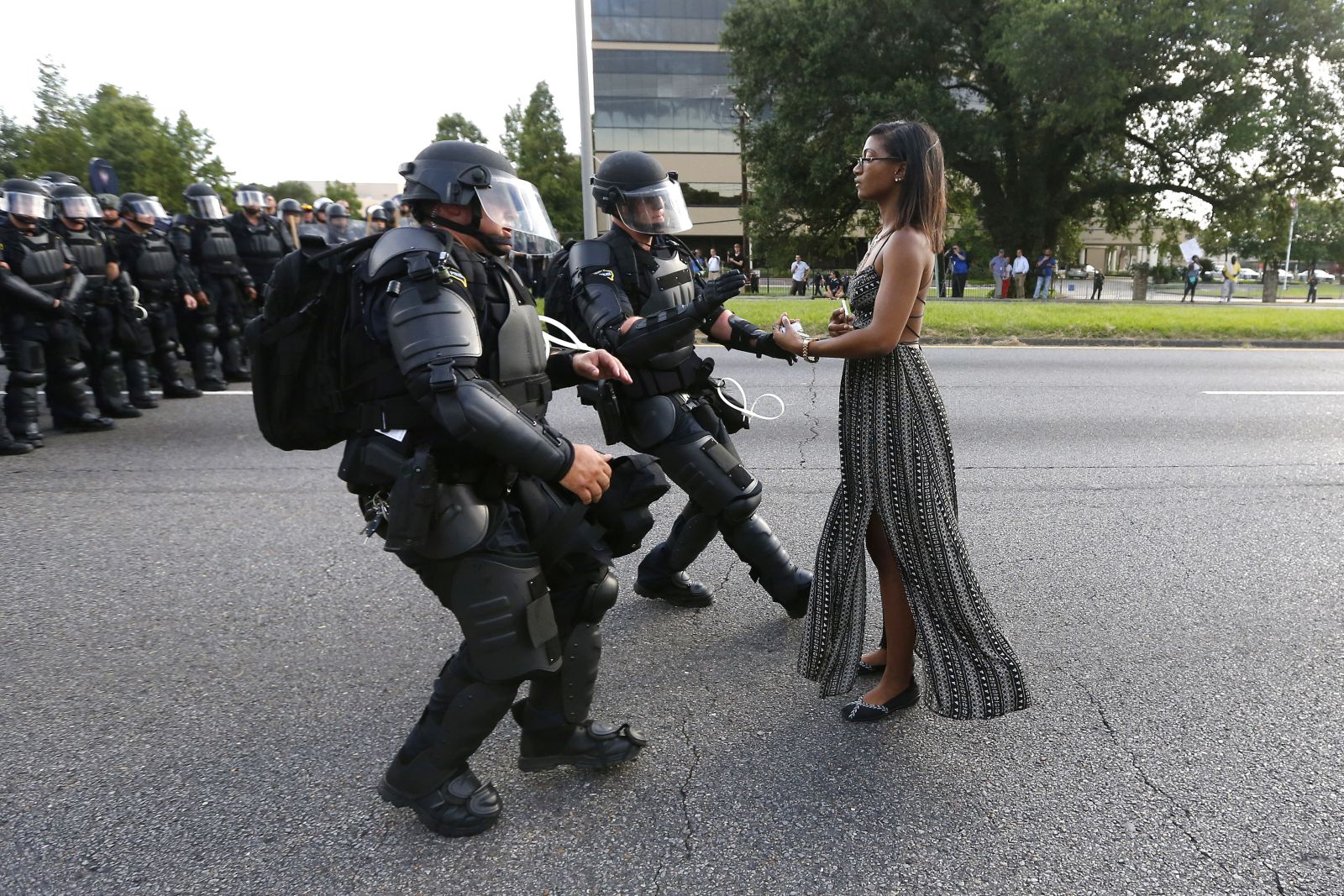
So much to unpack in this image. So terribly, terribly much. First off, Jonathan Bachman deserves a Pulitzer for this. I understand right place, right time, perfect timing on the shutter, but this is an iconic photo. Iesha Evans stands like a perfect statue of peace, eyes closed against the oncoming wave, arms crossed in front of her as if containing her power. Her dress is caught ever so lightly by the breeze, giving her an ethereal, almost angelic quality, as if she’s just landed. The riot officers, (thankfully) slowing, appear to be encountering her aura and repulsed by it.
That’s just the composition.
The reality is that Ms. Evans is about to be dragged down and zip-cuffed by two men more heavily armored than combat soldiers, men both nearly twice her size. She represents zero threat. No reasonable onlooker would conclude that she is armed. She is not in any way aggressive. She is peacefully protesting, but committing the ultimate crime of blocking a thoroughfare. For this, the police deemed greater than military force was necessary.
Putting aside that I’m presented with yet another peaceful civilian being brutalized by a police force unconcerned with “serve and protect” and fattened on years of cheap military surplus, I have a different problem with this image and what it represents. It’s almost too perfect. It might actually work. It might start to change public opinion about how policing is handled. That’s great, but my question is: why this one? Why this image? Why this woman?
Because we’re looking for Black Jesus.
These protests arose out of the general impression that minorities, particularly African-Americans, are assumed by the legal system to be guilty until proven innocent, unworthy of justice if they are, subject to summary punishment, that the system is unaccountable when it errs concerning their rights. I could recite a litany of names here, but it would seem incomplete because there will be another one horrifyingly soon. The largest issue is that even when the dead black (typically) man has done nothing to warrant roadside execution, the narrative always circles back to assume he somehow deserved it, somehow brought it on himself. Maybe he was a criminal a decade ago. Maybe he was rude. Maybe he had a toy gun. Maybe he was being suspicious.
In 1956, Rosa Parks was hauled off to jail for not giving up her seat on a bus. Her’s wasn’t the first case, in fact, there was already a case working through the legal system that would successfully end Montgomery’s bus segregation. But why were the women involved in that suit not raised up as icons of the Civil Rights movement like Parks was? The first one to be arrested, Claudette Colvin, well, she was 15 and girl had a mouth on her. She wouldn’t play well in the media. She wasn’t a good face for the movement. She wasn’t the Black Jesus they needed to show the injustice. Similarly, all of these people who’ve wound up dead after interacting non-violently with police have been somehow less-than-holy. Michael Brown may have robbed a store. Freddie Gray was packing a knife. Sandra Bland may have mouthed off to an officer. Eric Garner was selling cigarettes. Alton Sterling had a record. No qualifiers for Black Jesus there.
Now we have Philando Castille, who, by all accounts, was a model citizen. Gunned down without hesitation in his car after informing the officer that he was going to produce his permit to carry, Castille seems like the perfect person to hold up and say “this man did everything right.” He yielded to the officer when pulled over. He informed the officer that he was legally carrying. He followed all of the motions, and still wound up bleeding to death from multiple gunshot wounds.
But, like Jesus, he hung out with a woman who may have been less than the Blessed Virgin Mary herself, and if there’s one thing this Christian Nation cannot tolerate, it’s someone who is not white and less than perfect. So maybe he’s not our Black Jesus after all.
It’s possible that Iesha Evans is the Black Jesus of protesters. Maybe not. I’m sure we’ll hear in the coming days how she once got a B on a midterm or said a bad word once, or was in some way less than perfect, justifying her treatment in the scene in which she’s been immortalized. But maybe we need to stop looking for Black Jesus. Maybe we need to stop looking for that perfection and understand that we’ve already seen enough to know that there is brutal injustice going on in this nation. Half of the country lives in fear of the law, lives with a sense that they are not equal under the law, lives with examples that they can be refused justice without repercussions. Even if this is just a perception problem, it’s a problem. We need to stop looking for a savior to be crucified before our eyes to start working for salvation.
